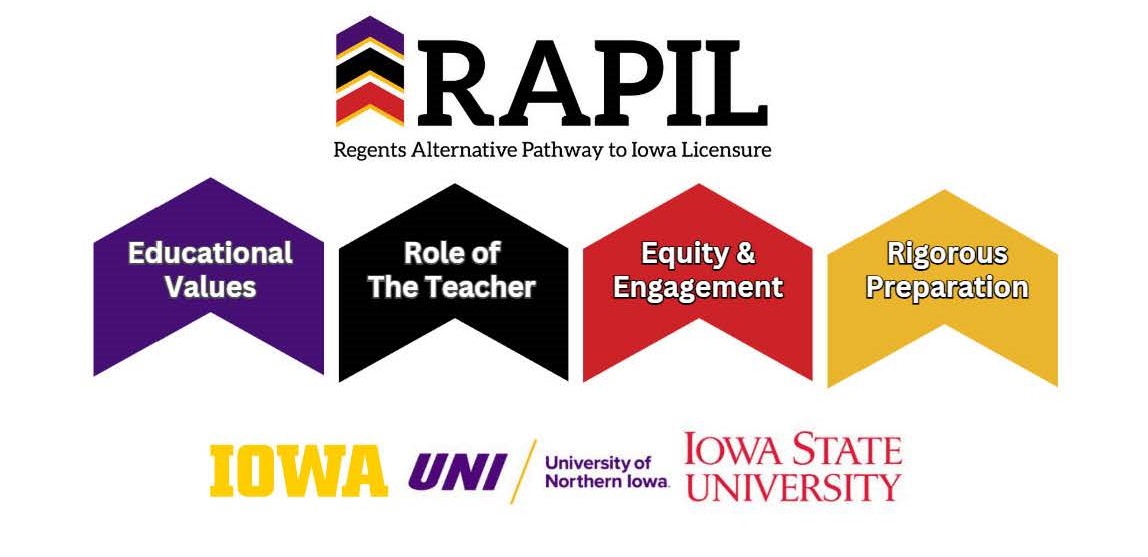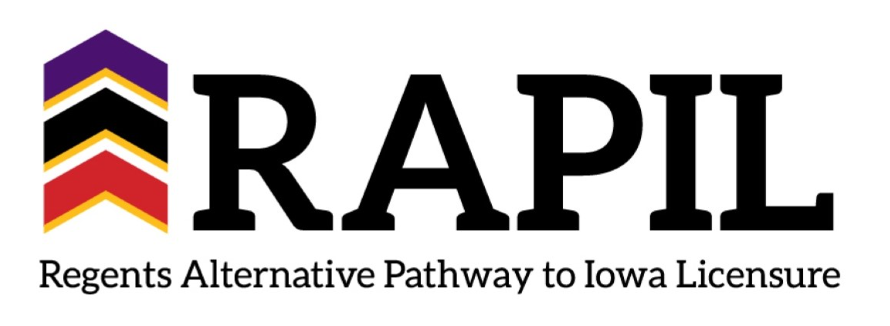Program Framework

To provide rigorous academic experiences, enriched by diverse field experiences, that prepare experienced professionals to become highly effective educators and school leaders. Dedicated to excellence, culturally-responsive and sustaining pedagogy, championing social justice, and cultivating compassion, advocacy, and collaboration, RAPIL’s core values draw from the strengths of each Regent institution to provide an unparalleled pathway to teacher licensure.
Our mission is to provide an authentic educational experience that empowers a candidate to become a highly successful professional educator. Through research-based content we prepare teachers to become continuous learners, reflective practitioners, and transformational leaders who advocate for students, schools, communities and the education profession.
The RAPIL educator preparation community holds the following twelve core beliefs:
- Educational Values
1. While fostering caring and supportive relationships, education provides equitable opportunities to gain the knowledge, skills, and dispositions essential to achieve personal, academic, social, and professional goals.
2. The educational process is student-centered, authentic in experience, grounded in research-based instructional strategies, pedagogical knowledge, and acknowledges the importance of diversity and inclusion.
3. Evidence-based practices aim to enhance the lives of students, support the effectiveness of schools, and contribute to the surrounding community, through strong relationships and cultural responsiveness.
- Role of the Teacher
4. Teachers should be able to identify the Iowa Teaching Standards and their District/School Standards and Goals. They understand how to use these standards to deliver high quality instruction and assessment for learning.
5. Teachers should be able to construct varied and appropriate learning goals that align to standards and can identify and implement strategies for systematically supporting students’ academic growth, behavior choices, mental health, and individual goals.
6. Highly effective teachers engage in a continuous cycle of learning, practice, and reflection to inform curricular, instructional, and evaluative decisions.
- Student Equity and Engagement
7. All students can perform and grow in the classroom setting when provided appropriate accommodations, specially designed instruction, and structured supports.
8. Well-developed lesson plans utilize effective research-based strategies that support behavior management and student engagement by fostering learning environments where all students can reach their academic potential.
9. The assessment process should be an ongoing, multi-dimensional endeavor, utilizing formative and summative assessment data to better understand the impact of instruction and improve learning outcomes for all students.
- Rigorous Preparation
10. Clinical experiences promote on-site learning opportunities that are varied, developmentally appropriate, and linked closely with academic preparation.
11. In-person learning opportunities are critical for modeling of instructional strategies and hands-on experiences that establish a context for application of the Iowa Teaching Standards.
12. High-quality educator preparation integrates collaborative experiences, evidence-based pedagogy, hands-on experiences guided by veteran educators, technology for learning, and robust academic inquiry, enabling candidates to engage in rich, purposeful, and authentic work.

